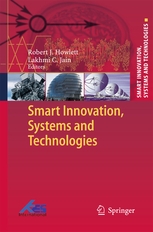Scope of the Conference
Human-centered intelligent systems (HCIS) are information systems applying artificial intelligence in order to support humans and to interact with people. Today, intelligent systems play an important role in digital transformation in many areas of science and practice. Artificial intelligence defines core techniques of modern computer science that lead to a rapidly growing number of intelligent services and applications in practice. The investigation of HCIS includes a deep understanding of the human-centered perspective of artificial intelligence, of intelligent value co-creation, ethics, value-oriented digital models, transparency, together with intelligent digital architectures and engineering to support digital services and intelligent systems, the transformation of structures of digital businesses and intelligent systems based on human practices, as well as the study of interaction and the co-adaptation of humans and systems. HCIS especially considers human work when supporting digital services and building intelligent systems, which consists of optimizing knowledge representations, algorithms, collecting and interpreting the data, and even deciding what to model.
We are inviting authors for contributions from research and practice to the Human-Centered Intelligent Systems (HCIS) conference, which is collocated under the umbrella of KES Smart Digital Futures. Following topics define the conference scope, although other associated subjects may be applicable.
Digital Humanism and Artificial Intelligence
- Social Computing and Artificial Intelligence
- Human Factors in Smart Digital Systems
- Human Expertise, Judgement, Intuition, Empathy, Moral Compass, Creativity, Ethics and Value Perspectives, Ethical Dilemmas and Decisions, Ethical Leadership
- Privacy and Freedom of Speech
- Fairness, Equality, Human Rights
- Democracy, Open Engagement, Inclusion
- Transparency, Explanation, Reflection
- Human Quality of Digital Products and Services
- Effective Regulations and Digital Policies
- Compliance with Regulatory Standards, Laws, Rules, Principles, Policies, Morality, Values, Ethics, Humanity, Employment, Society, Environment, Society
Artificial Intelligence and Cognition
- Smart Interpretation of Images, Numbers, Texts, Voices, Dialogs, Sensors, Actors, Information, Signals, Events
- Cognitive Computing and Internet of Things
- Human and User Modeling
- Knowledge Technologies and Semantic Web
- Knowledge Modeling, Representation, Reasoning and Inference
- Transparency, Explanation and Rationality
- Neural Networks and Deep Learning
- Support Vector Machines
- Real-Time Data Stream Processing
- Big Data Analytics
- Pattern Recognition
- Statistical Learning
- Clustering and Classification
- Analytic and Rational Machines
- Decision Support, Simulation and Management
- Transformation of Human Tasks
Intelligent Systems and Architectures
- Intelligent Digital Systems and Services Architecture, Modeling and Engineering
- Digital Business, Products, Services, and Systems
- Decision Support Services and Management
- Resilient and Adaptive Software Architecture
- Digital Enterprise Architecture
- Internet of Things and Sensor Networks
- Robotics and Remote Control
- Adaptive Recommender Services and Chatbots
- Intelligent Platforms and Ecosystems
- Blockchains and Distributed Transactions
- Cyber Security, Identity and Digital Rights Management
- Innovation in Service Engineering, Delivery, and Quality Assessment
- Social Network Modeling and Intelligent Systems
- Mobile Technologies and Intelligent Services
- Knowledge Modeling and Cognitive Maps
- Human-Centered Service Systems
- Dynamics of Action and Interaction
- Adaptive Systems and Services
- Adaptive Case Management and Processes
- Reliability and Resiliency
- Human Factors in Software, Service and Systems Engineering
- Virtual Environments
- Ecology of Service Systems
- Smart and Wise Systems
- Complexity of Organizations and Systems
- Complex Socio-Technical Systems
- Rebuilding Complex Systems
- Systems Evolution and Innovation Processes
Intelligent Interaction and Visualization
- Intelligent Visualization, Interaction, Collaboration and Communication
- Intelligent Virtual and Augmented Reality
- Intelligent Human-Computer Interaction
- Intelligent Multimodal Interactive Systems
- Intelligent Dashboards and Adaptive Visualizations
- Intelligent User and Role Models
- Intelligent Affective Computing
- Intelligent Audio, Video and Signal Processing
- Intelligent Language Analytics and Generation
- Interaction with Internet of Things, Robots and Autonomous Systems
- Speaker and Sound Recognition
- Human Factors and Aging
- Ergonomics, Interaction and Visualization
- Human and User Modeling
- Usability and User Experience
- Simulation Environments and Systems
- Interaction and Game Design
- Safety Management and Human Factors
Applications and Use Cases
- Smart Systems in Science, Medicine, Health Care, Management Systems, Administration, Finance, Banking, Insurance, Consulting, Knowledge Transfer, Retail, Manufacturing, Logistics, Smart Energy, Industrial Environments, Smart Cities, Smart Home, Architecture and Sustainable Urban Planning, etc.
- Industry 4.0: Advanced Digital Manufacturing, Management and Process Control
- Sensor and Actor-based Autonomous Systems and Robotics
- Intelligent Science and Educational Services
- Intelligent Digital Libraries



